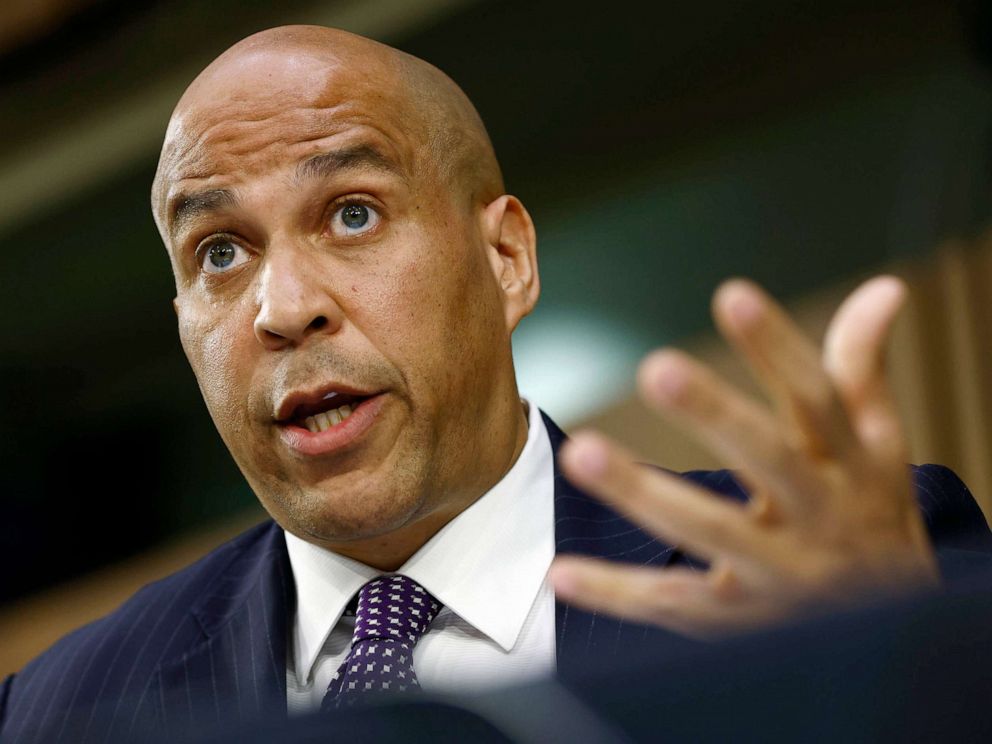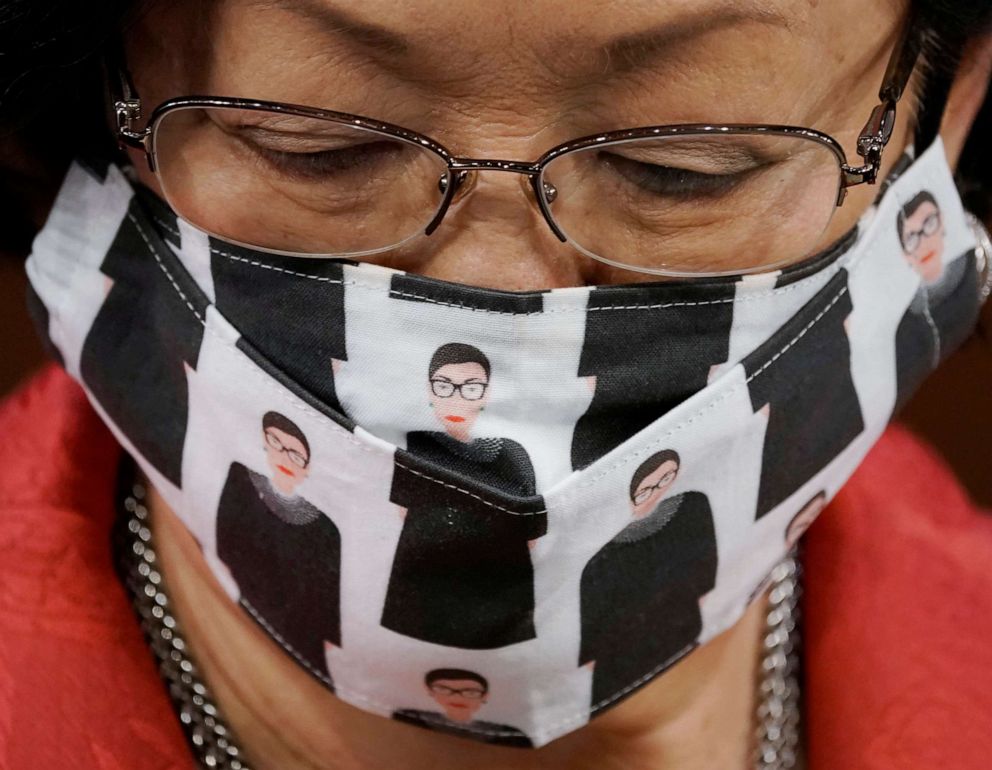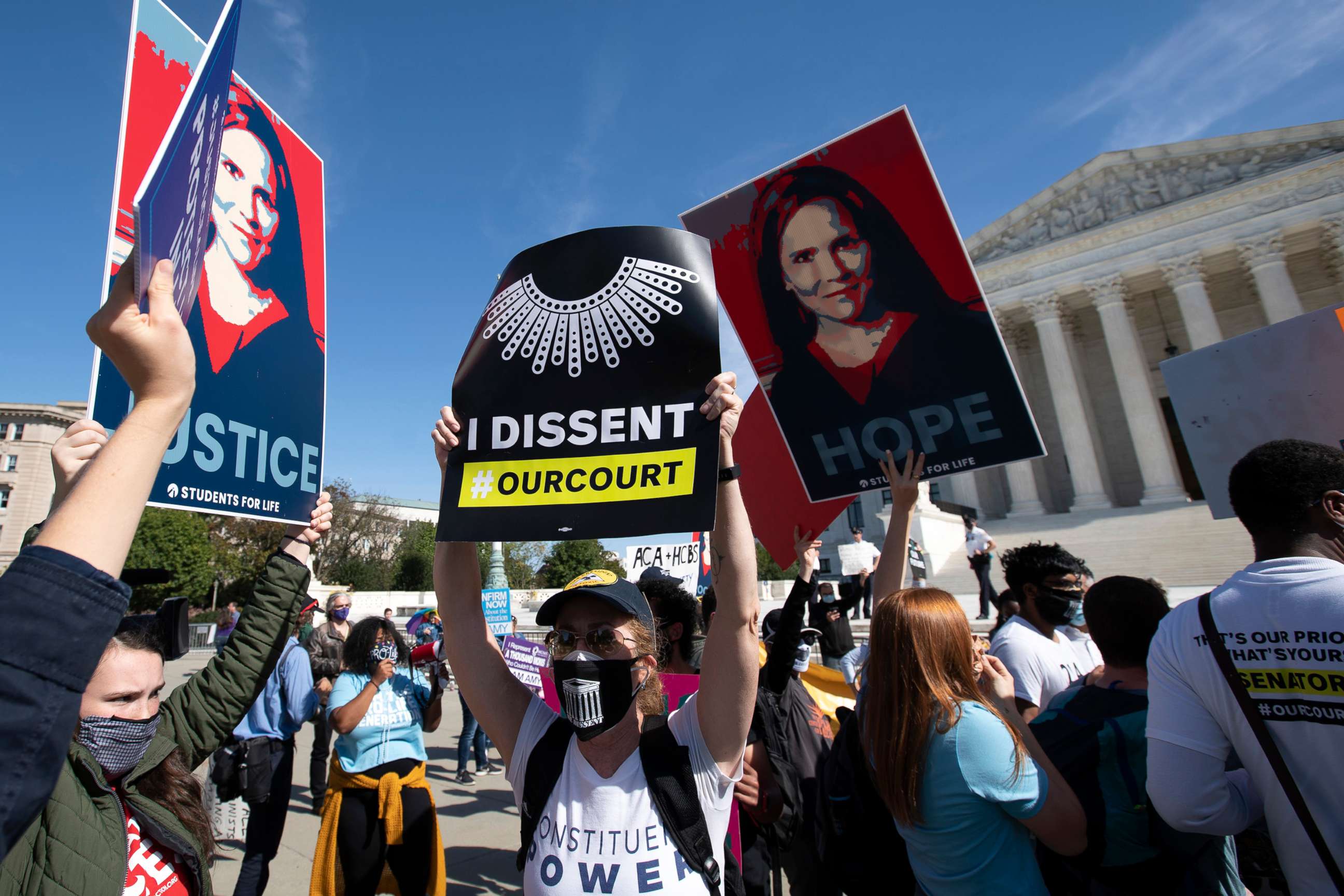Barrett dodges questions from Harris on voting rights, climate change
Vice-presidential nominee Sen. Kamala Harris, D-Calif., asked Barrett whether she agrees with the majority opinion written by Chief Justice Roberts in Shelby County v. Holder stating that voter discrimination still exists -- but Barrett wouldn’t answer what Harris said she thought was an easy question.
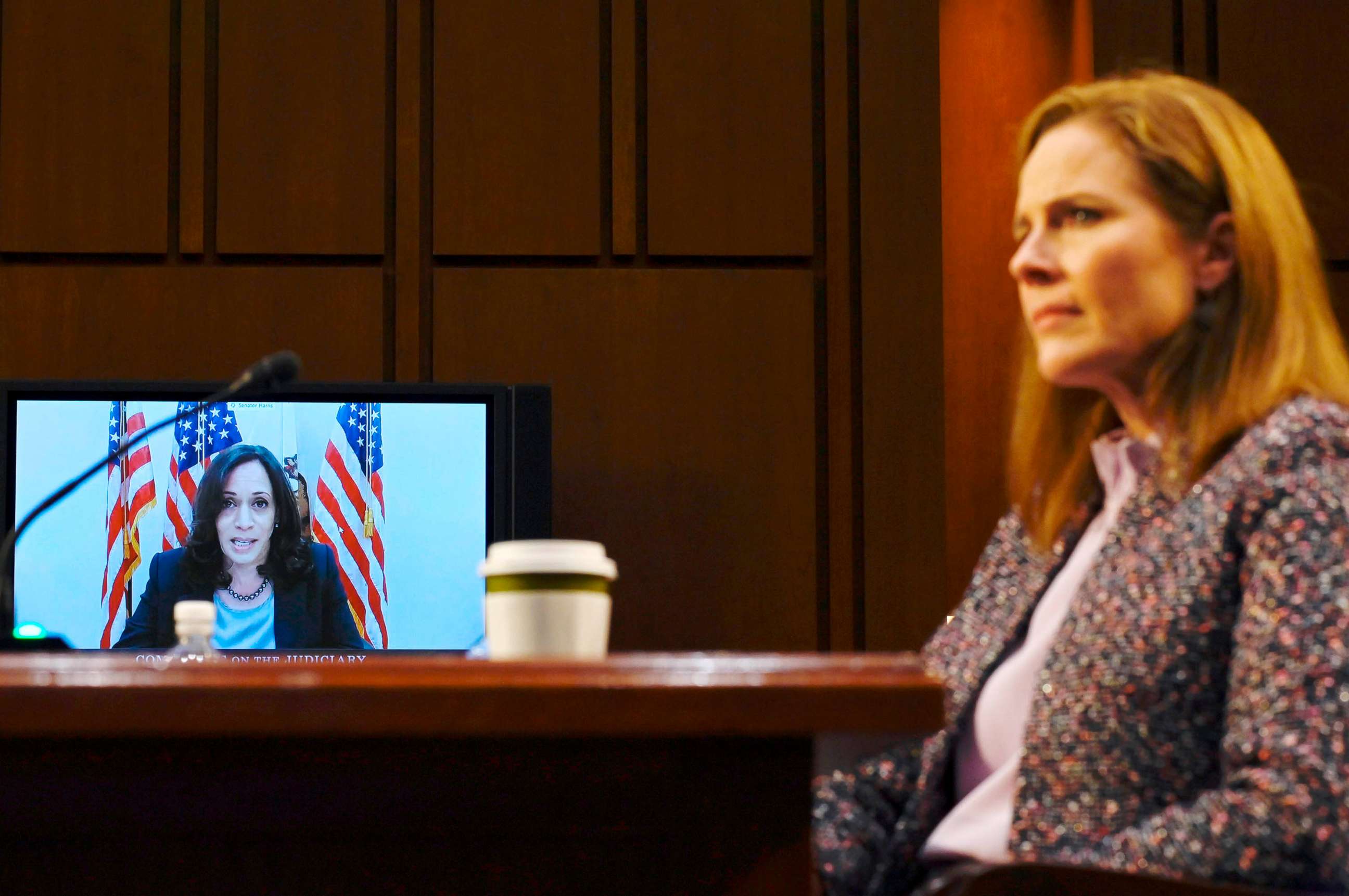
"Senator Harris, I will not comment on what any justice said, an opinion, whether an opinion is right or wrong, and endorse that proposition," Barrett said.
"So, do you call it a proposition or fact? Are you saying you cannot agree with the fact?" Harris pressed.
"Senator, I'm not exactly sure what you're getting at with asking me to endorse the fact or whether any particular practice constitutes voter discrimination. I'm very happy to say that I think racial discrimination still exists in the United States, and I think we've seen evidence of that this summer," Barrett said.
"These are very charged issues that have been litigated in the courts, and so I will not engage on that question," she added, when Harris continued on voter and racial discrimination.
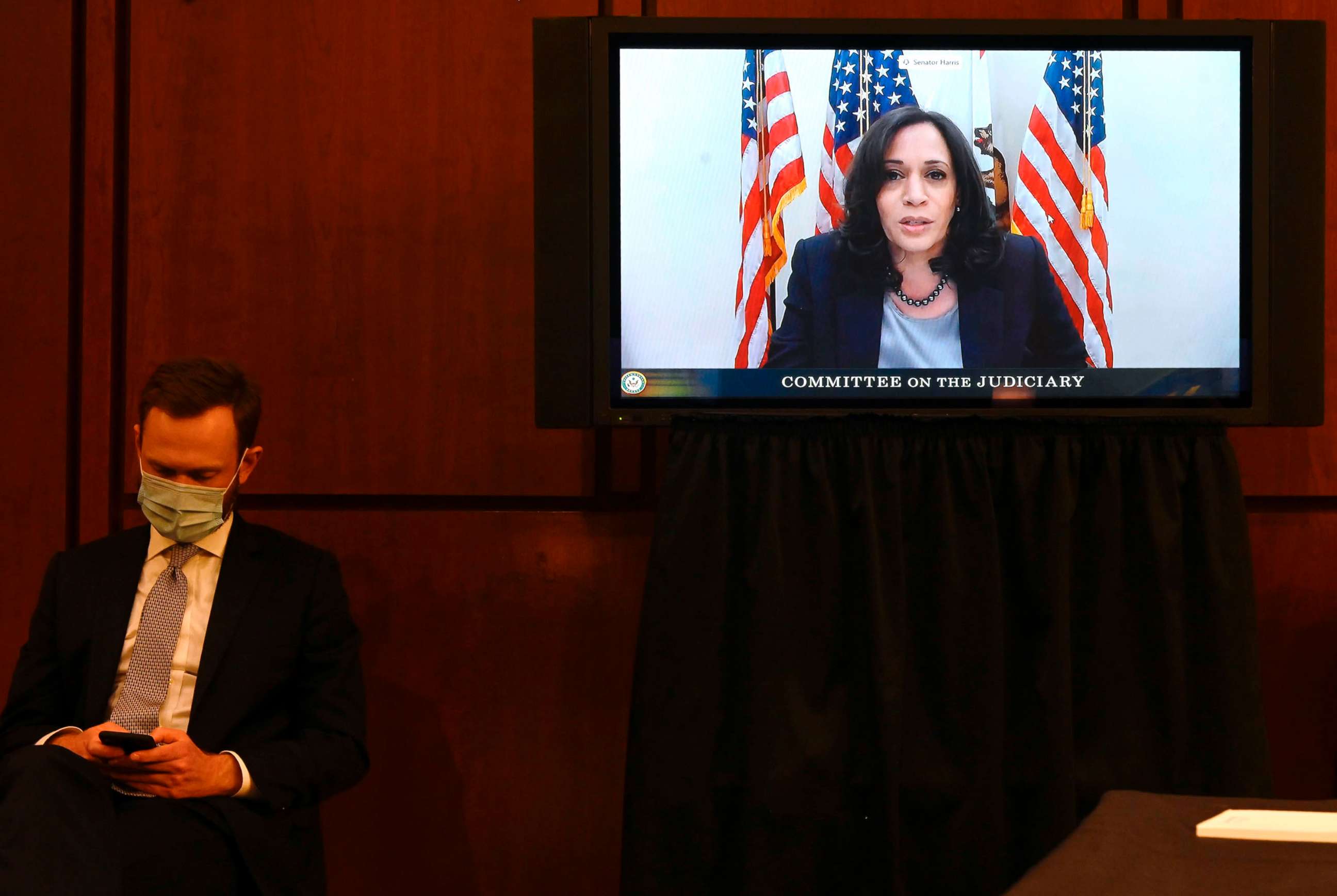
Dissatisfied with her response, Harris pivoted to science and climate change and, after a series of simple questions including whether she believes in COVID-19, asked Barrett if she believes climate change is real.
"You have asked me a series of questions like that are completely uncontroversial like whether COVID-19 is infectious, whether smoking causes cancer, and then trying to analogize that to eliciting an opinion from me that is a very contentious matter of public debate, and I will not do that," Barrett said.
She didn't offer the information, but Barrett has previously disclosed she was diagnosed with COVID-19 over the summer.
